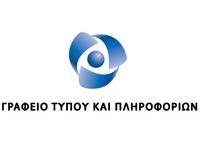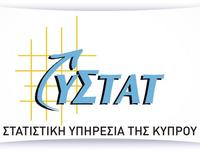Press Releases

19-01-2023 14:32
Statement of the Minister of Finance in relation to the implementation of sanctions against Russia
From the first moment since Russia's invasion in Ukraine, Cyprus sided with the European Community, unequivocally supporting Ukraine and its people. As a member of the EU, and as a sign of solidarity with the struggling Ukrainian people, Cyprus played a positive role in both the establishment and implementation of the Sanctions against Russia, despite the adverse effects these would have on the Cypriot economy. This impact may have been disproportionate compared to other EU countries.
From the beginning of the introduction of the Sanctions, "information" appeared in the international press that presented Cyprus as opposing them, such as, for example, opposition or veto that Cyprus allegedly exercised on the ban on SWIFT transactions by Russian Banking Institutions. Fake news that even created a commotion outside the Cypriot consulate in Kyiv, endangering staff, and forcing the Cyprus government to issue statements on the matter.
This misinformation continued, including rumours about the ineffective implementation of European Sanctions by Cyprus, or that Cyprus continues to be a safe haven for Russian oligarchs' capital.
In relation to the exposure of the Cyprus economy and Russian funds in Cyprus, the reality has changed significantly compared to the pre-2013 period, which is the period in which some of the statements made in the CBS report were valid.
That is why I feel the need to clarify the issue on what is valid today and the lack of substance of such statements, demonstrating a completely different picture to the one that is suggested, as the exposure of our banking sector to Russia is significantly lower than what is often presented in the international press , and close to the level of most European countries.
- By the end of 2021, total loans with exposure to Russia constituted just 0.8% of total loans.
- In the same period, total deposits with exposure to Russia represented only 3.8% (from 40% in 2013) of total deposits, of which two thirds constituted interbank deposits, and despite the fact that a relatively large Russian Community lives and works in Cyprus, which has nothing to do with sanctioned persons or entities. This amount is a far cry from the CBS claim that the exposure of the Cypriot banking sector to Russia is €5.6 billion. In reality, this exposure does not exceed €1 billion. It is sad that such inaccuracies are put forward by an international news network.
- The Banking Institutions in Cyprus in recent years, interpret and apply in the strictest way the framework concerning customer due diligence procedures in relation to the Anti Money-Laundering Framework. This practice is also the reason why, as you know, there are very frequent complaints from both investors, businessmen, and citizens against the banking sector. This practice, which is documented in MONEYVAL's 2019 Report, has led to the closure of over 80,000 accounts and the rejection of account opening requests for thousands more. Indeed, many of them have opened accounts in other European countries or specific US states without much difficulty, as indicated in a recent report by the European Parliament. The claim of some that it is easy to open bank accounts in Cyprus is not true, possibly in contrast to the case of their countries.
- Cyprus does NOT hold any reserves of the Central Bank of Russia, unlike other European countries.
In relation to the imposition of sanctions, I must clarify the following.
The implementation framework of Sanctions in Cyprus is also documented in detail by the Mutual Evaluation Report (MER) of Cyprus by MONEYVAL. The report includes a detailed record of how financial sector supervisory authorities, including the Central Bank of Cyprus, the Cyprus Securities and Exchange Commission, and other supervisory authorities conduct on-site audits of financial entities regarding the imposition of sanctions.
Beyond this framework, due to the complexity and number of authorities involved in the implementation of sanctions, the Government by a decision of the Council of Ministers in June 2022 decided on the establishment and operation of a "National Unit on the Implementation of Sanctions," similar to the respective UK Unit (Office for Financial Sanctions Implementation – OFSI) an approach that is not seen in many countries. The Unit will oversee the imposition of sanctions and will involve, among others, the Ministry of Finance, the Central Bank of Cyprus, and the Law Office of the Republic.
Cyprus has also adopted and implemented all the European Directives concerning the fight against Money Laundering (AML). For this implementation the Republic is assessed both by the European Union and by international organisations such as MONEYVAL.
The Central Bank of Cyprus has developed and manages a register of bank accounts in which all bank accounts and their beneficial owners, i.e. the natural persons behind the corporate entities, are recorded.
As far as the restrictive measures are concerned, to date they have been as follows:
- Freezing of assets in credit institutions in the order of €105 million.
- Freezing of assets by investment companies registered in Cyprus in the order of €720 million.
- Freezing of assets of another €719 million of funds held by Administrative Service providers supervised by the Cyprus Securities and Exchange Commission.
- During the performance of any act of transfer or purchase and sale, property controls and freezing of assets are carried out by the Department of Lands and Surveys for sanctioned entities.
- During acts of transfer/change of the share composition/sale of Cypriot Companies connected to persons under Sanctions, checks are carried out by the Registrar of Companies and Intellectual Property and actions are implemented prohibiting the execution of the order.
- The Department of the Registrar of Companies has identified a considerable number of companies in its databases, which are linked to Russian nationals under sanctions either as appointed Officers (Directors and Secretaries) or Shareholders or even Beneficial Beneficiaries of companies.
- To date, the Council of Ministers has approved the initiation of the process of depriving Cypriot citizenship of 63 persons and 96 dependents for a total of 159 persons. Of these, 10 persons are under the sanctions’ regime with 31 dependents.
I want to underline that the Cypriot authorities are in constant contact with the European Union and the competent European authorities, as well as the competent authorities of other Member States to which they provide the data, are accountable, and also coordinate for the uniform imposition of sanctions. This is an obligation of the Republic of Cyprus as an EU Member State.
Regarding confiscations, I want to point out that the EU Sanctions do not involve confiscations but asset freezing. The position of the European Union in the relevant committees for sanctions is to avoid any confiscations as these entail complex legal issues and may lead to damages claims from their owners, or even compensations. It is for this reason that Cyprus, like most European countries, applies the EU Sanctions Regime with the freezing and not the confiscation of assets.
The same applies to the publication of a name list that includes personal data. This is not permissible under the acquis communautaire for the protection of personal data even of persons who are under a sanctions regime.
In conclusion, I would like to emphasise that Cyprus applies an effective framework regarding the fight against Money Laundering as well as for the implementation of sanctions. A framework that has unmistakably corrected many of the distortions and mistakes of the past. A framework that is constantly being enhanced by incorporating new regulations according to international developments. The same applies to the implementation of sanctions against Russia.
Cyprus is constantly under scrutiny for its policies against Money Laundering, transparency of entities and the implementation of Sanctions. This is the case from the European Union itself, from international organisations such as MONEYVAL, from Credit Rating Agencies which take these issues very seriously in their evaluations of the economies of countries. The Reports of the above organisations as well as the upgrades of the Cypriot Economy demonstrate the opposite image to that of tolerance to illegal acts or inactivity, which is sometimes projected. It is particularly unfortunate that this image is reinforced or promoted abroad by politicians at home in their attempt to gain petty partisan benefits.
As a Government we have made great progress over the past ten years in the fight against Money Laundering and towards transparency. Progress which is recognised internationally. At the same time, mistakes have been made, especially with regard to the Cyprus Investment Program, which harmed the image of Cyprus abroad. But these mistakes cannot negate the enormous progress that has been made in recent years and which must be continued.
(IK)
Relevant Press Releases

19-04-2024 16:42
PIO e-mail Αlerts service is suspended

18-04-2024 14:04
Price Index of Construction Materials: March 2024

17-04-2024 13:26
Harmonised Index of Consumer Prices (HICP): March 2024


